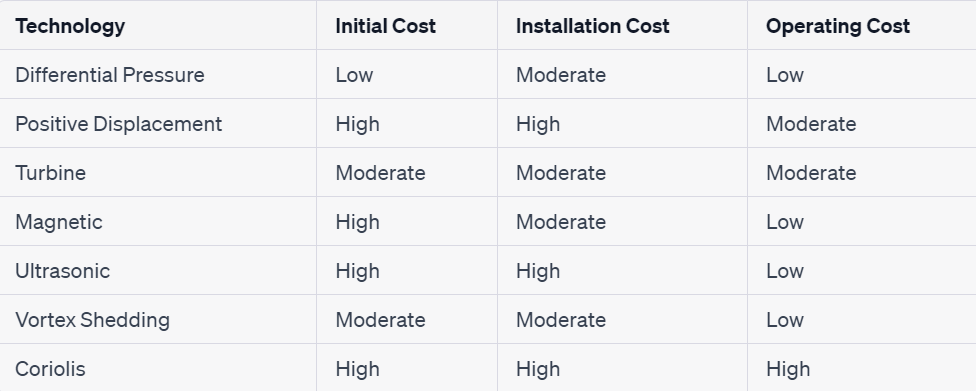Understanding the Cost Considerations in Flow Measurement
- ADMIN
- May 1, 2023
- 2 min read
Flow measurement is a critical process in many industries, from water and wastewater treatment to chemical manufacturing and oil and gas production. Accurate and reliable flow measurement helps ensure efficient operation, product quality, and regulatory compliance. However, implementing a flow measurement system can involve significant costs, and it is essential to understand the various cost considerations involved. In this article, we will discuss the key factors that affect the cost of flow measurement and how to optimize your investment.
Keywords: Flow measurement, Cost considerations, Investment, Accuracy, Reliability, Maintenance, Calibration, Compatibility, Installation, Total cost of ownership.
1.Accuracy and Reliability
The accuracy and reliability of flow measurement are critical factors that determine the quality of your product and the efficiency of your operation. A flow meter that provides inaccurate readings can lead to over- or under-production, resulting in wasted resources and lost revenue. A flow meter that requires frequent maintenance and repairs can also increase downtime and operating costs. When selecting a flow meter, it is essential to choose a device that offers high accuracy and reliability while also being compatible with your process conditions and fluids.
2. Maintenance and Calibration
Maintenance and calibration are ongoing costs associated with flow measurement. Regular maintenance is essential to keep your flow meter operating at peak performance and prevent unexpected downtime. Calibration is also critical to ensure accurate and reliable flow measurement. Some flow meters require frequent calibration, while others have longer intervals between calibrations. The cost of maintenance and calibration can vary widely, depending on the type of flow meter and the complexity of your application.
3. Compatibility and Installation
Compatibility and installation are also important considerations when selecting a flow meter. Some flow meters are better suited for certain fluids, temperatures, pressures, and flow rates. Choosing a flow meter that is not compatible with your process conditions can result in inaccurate readings, increased maintenance costs, and reduced lifespan. Proper installation is also critical to ensure accurate and reliable flow measurement. Improper installation can lead to flow disturbances, errors, and leaks. The cost of installation can vary depending on the complexity of your application, the type of flow meter, and the location of the installation.
4. Total Cost of Ownership
The total cost of ownership (TCO) is the sum of all costs associated with owning and operating a flow measurement system over its lifespan. TCO includes the initial investment, maintenance and calibration costs, installation costs, and any other costs associated with the operation and upkeep of the system. When evaluating different flow measurement options, it is essential to consider the TCO rather than just the initial cost. A low-cost flow meter may seem like a good investment initially, but it may require more maintenance and calibration in the long run, resulting in higher TCO.
In summary, the cost of flow measurement involves many factors that should be considered when selecting a flow meter. Accuracy and reliability, maintenance and calibration, compatibility and installation, and TCO are all critical considerations that can impact the cost-effectiveness of your investment. By selecting the right flow meter for your application, optimizing maintenance and calibration, and considering the TCO, you can ensure accurate and reliable flow measurement while minimizing costs.

Kommentarer